MOBILE APPLICATION DEVELOPMENT
Mobile application development involves a comprehensive process of designing, creating, testing, and deploying applications specifically for mobile devices such as smartphones and tablets.
At Alpheratz, we are qualified to support in the following areas:
Planning and Requirements Gathering
- Concept Development: Defining the purpose and functionality of the app, including target audience and business objectives.
- Market Research: Analysing competitors and market trends to identify opportunities and user needs.
- Requirements Documentation: Creating a detailed specification of the app’s features, functionalities, and user experience.
Design
- User Experience (UX) Design: Focusing on how users interact with the app, ensuring intuitive navigation and overall usability.
- User Interface (UI) Design: Crafting visually appealing interfaces that align with branding and enhance the user experience.
- Prototyping: Developing wireframes and interactive prototypes to visualize the app’s design and gather feedback before development.
Development
- Choosing a Development Approach:
- Native Development: Creating apps for specific platforms (iOS, Android) using platform-specific languages (Swift for iOS, Kotlin/Java for Android).
- Cross-Platform Development: Using frameworks like React Native, Flutter, or Xamarin to build apps that work on multiple platforms from a single codebase.
- Backend Development: Setting up server-side components, including databases, APIs, and authentication systems that support the app’s functionality.
- Integration of Third-Party Services: Incorporating external APIs or services (e.g., payment gateways, social media integrations, mapping services).
Testing
- Quality Assurance (QA): Conducting various tests (functional, usability, performance, security) to ensure the app works as intended and is free of bugs.
- Beta Testing: Releasing the app to a limited audience to gather real-world feedback and identify any remaining issues before the official launch.
Deployment
- App Store Submission: Preparing the app for submission to app stores (Apple App Store, Google Play Store) by adhering to their guidelines and requirements.
- Launch Planning: Creating a marketing and launch strategy to promote the app and ensure a successful rollout.
Maintenance and Support
- Performance Monitoring: Using analytics tools to track user behaviour, app performance, and key metrics (downloads, user engagement, retention rates).
- User Feedback: Collecting user feedback through reviews and surveys to identify areas for improvement.
Analytics and Monitoring
- Data Integration Tools: Technologies that combine data from different sources into a unified view, allowing for comprehensive analysis.
- ETL Processes: Extracting data from various sources, transforming it into a suitable format, and loading it into a data warehouse or analytics platform.
Emerging Technologies
- Augmented Reality (AR) and Virtual Reality (VR): Incorporating AR/VR capabilities to enhance user experiences in mobile applications.
- Artificial Intelligence (AI): Utilizing AI for features like chatbots, personalized content recommendations, and predictive analytics.
- Internet of Things (IoT): Developing apps that interact with IoT devices, allowing users to control smart devices from their mobile phones.
